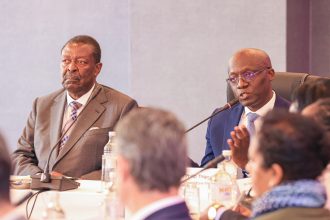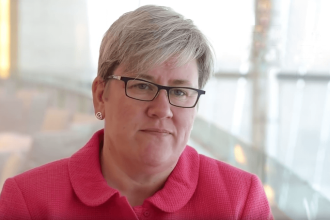By Lenah Bosibori
The African Biodiversity Network (ABN) and its stakeholders have called upon the Kenyan government to urgently review and strengthen policies that protect the nation’s rich bio-cultural diversity from exploitation by unscrupulous foreigners and nationals
Speaking in Nairobi on Wednesday during a two-day media engagement, Gathuru Mburu team leader Ngaatho Community highlighted the alarming rate of theft, destruction, over-exploitation and desecration of sacred sites and natural forests such as Kayas, the Mau Forests, Mt Kenya, Kakamega and Elgon ecosystems.
“The country is witnessing widespread theft and destruction of its bio-cultural resources and our rich biodiversity. The government must develop and implement policies ensuring their conservation and equitable benefit sharing in regulated usage. The current lack of a benefit-sharing policy leaves communities vulnerable to exploitation,” Mburu stated.
ABN and the Biodiversity and Biosafety Association of Kenya (BIBA Kenya) held a media engagement to sensitize them on how better the media can report on the conservation of Kenya’s culture and heritage that is diminishing due to technological advancements.
Mburu further emphasized the need for legal support and protection for communities, many of whom are unaware of the value of their resources. “While some communities are knowledgeable and vocal about defending their resources, the majority are not and require legal support and protection,” he said. “Every Kenyan should be aware of and knowledgeable about the natural resources within their locality.
According to Mburu, these resources have the potential to transform local economies and sustain our cultural identity
Anne Maina, the National Coordinator of BIBA Kenya, underscored the importance of media engagement saying that the interactions with journalists have shown the need to engage with editors too. “Previous interactions with journalists have shown the need to engage editors with the knowledge about the interconnectedness of biological and cultural diversity with socio-economic development. This will ensure that they have informed editing of stories related to bio-cultural diversity,” Maina explained.
BIBA Kenya is a network comprising Community Based Organizations, Non-Governmental Organizations, Faith-Based Organizations, and Farmer groups,
Dr. Fassil Gebeyehu, General Coordinator of the African Biodiversity Network, emphasized the need to demystify the concept of bio-cultural diversity, stressing the importance of protecting genetic, species, ecosystem, and cultural diversities.
“Protecting elements of cultural diversity, such as language, traditions, and indigenous knowledge, is crucial for a country like Kenya. With a rising youthful and urbanized population, many are becoming disconnected from their ancestral lands and cultural heritage,” Gebeyehu noted.
He warned of the cultural threats posed by urbanization saying that many people no longer identify with the foods and their traditions. “Many young people no longer identify with the foods and traditions of their grandparents, losing these cultural elements threatens our cultural values and environmental stewardship,” said Gebeyehu.
The African Biodiversity Network with its partners in Kenya called upon for the nurturing of a new generation of knowledge holders, primarily the elderly, to educate the youth on the importance of conserving biological and cultural diversity. “This intergenerational transfer of knowledge is essential to mitigate the loss of this heritage to urbanization,” read part of the statement.




